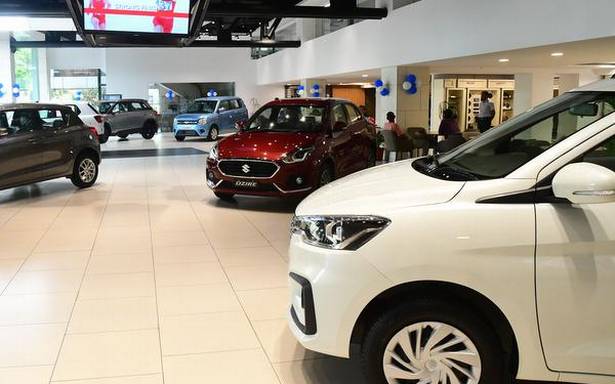Supply issue impact on growth may be 400-600 bps: Crisil
Hit by the global shortage of semiconductors, sales growth for India’s passenger vehicle (PV) segment will be limited to 11-13% this fiscal, according to Crisil Ratings.
But for the supply issue, growth forecasts could have been 400-600 basis points (bps) higher, it said. Conclusions are from Crisil’s analysis of India’s top three PV makers with combined market share of about 71%.
“Since the pandemic began, preference for personal mobility has increased, leading to more-than-expected demand for PVs… The upshot of the chip shortage has been PV production cuts, which will [reflect in] the ongoing festive season, when sales are typically higher…. we foresee tempered overall growth for PVs this fiscal,” senior director Anuj Sethi said. Semiconductors, or chips, are crucial for features such as navigation, infotainment and traction control. For customers, the waiting period for some models has risen from 2-3 months to 6-9 months, Crisil noted. Pandemic-induced uncertainties had led to sharp swings in orders by OEMs, which account for 10-12% of global chip demand.
“Poor inventory planning by OEMs, chip hoarding by Chinese firms, and natural disasters affecting major chip factories further exacerbated the problem,” it added. Shortages are expected to continue into the first quarter of next fiscal with capacity addition not keeping pace with demand.
“To be sure, OEMs are doing what they can, such as diverting chips to high demand segments such as utility vehicles (51% of sales in the first half of this fiscal versus 42% in the first half of last fiscal) from mid-segment vehicles including sedans, and prioritising the production of premium PVs, which, too, are seeing strong demand,” it said.
Some OEMs are even removing features from certain models, to conserve chip usage, it added.
“Besides the impact on operating leverage stemming from production losses, higher metal prices could also dent operating profitability of OEMs by 100-150 bps to 6.5-7% this fiscal. However, their credit profiles will remain stable driven by still-healthy cash flows, strong balance sheets and robust liquidity,” said Mayuresh Korde, Team Leader, Crisil Ratings.
Source: Read Full Article

